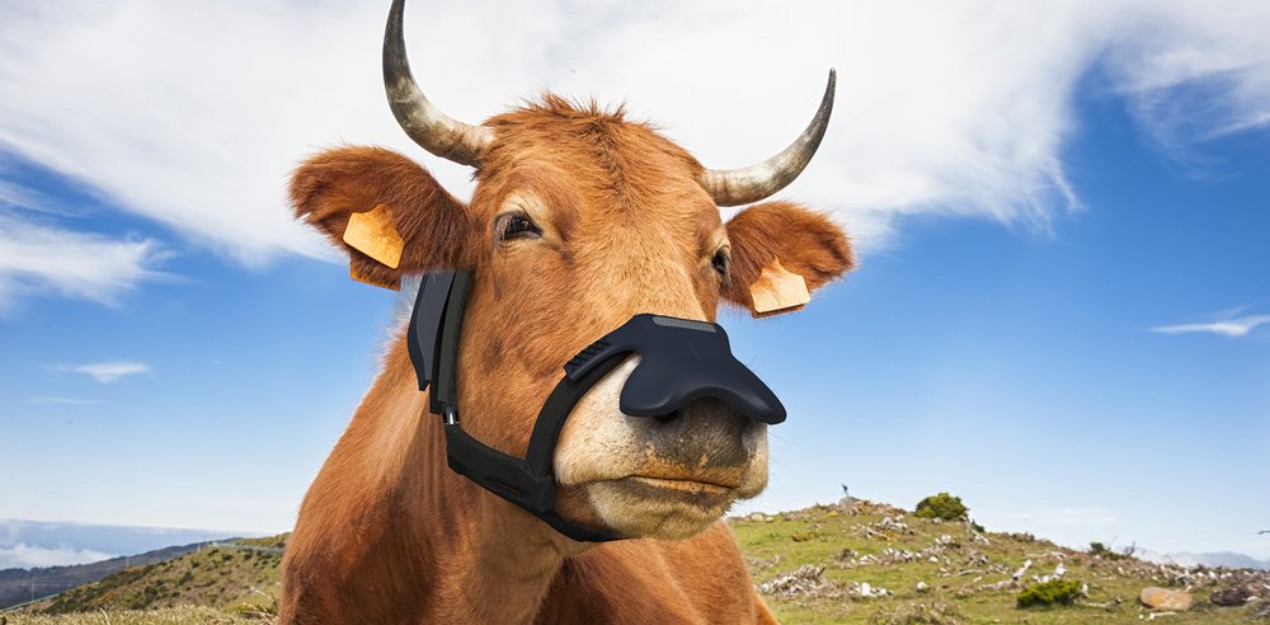A new face mask for cattle captures cows’ burps, which is responsible for liberating methane and converts the methane into carbon dioxide and water vapour. The wearable device for cattle, designed to slow down climate change, was one of the four winners of the inaugural Terra Carta Design Lab competition.
Methane is a gas more than 25 times as potent as carbon dioxide at trapping heat in the atmosphere, causing the warming of the planet.
Prince Charles, who launched the competition as part of his Sustainable Markets Initiative, hailed the ground-breaking design by UK-based design group Zelp as “fascinating” at an awards ceremony in London last week.
A single dairy cow can produce up to 130 gallons of methane per day. Their burps account for 95 per cent of a cow’s methane emissions. There are approximately one billion cattle worldwide. Cows and other farm animals produce about 14 per cent of human-induced climate emissions.
Climate scientists have been trying to find solutions to the problem for years. In the past, solutions to the cattle industry’s methane problem have involved changing cows’ diets. Scientists proposed the mass production of a puffy, pink seaweed to combat climate change, reported Insider in 2019.
Zelp’s solution allows cows to digest typical food, with the mask working to detect, capture and oxidise the methane the cow releases. The sensor at the tip of the masks detects when a cow exhales and the percentage of methane expelled. The mask sets the oxidation mechanism into action when the levels of methane are too high. The mask also collects data on the animals to improve efficiency and animal welfare on farms, said Zelp co-founder Francisco Norris in an interview to Insider.
“The Terra Carta will play a key role in helping us tackle the final design optimizations before we can produce our technology at scale, and we are confident that through the network that this initiative provides, we will be able to really advance our technology and to unlock its true potential,” Norris said.
The UK-based design group has received £50,000 ($63,424) as part of the prize to help further develop the idea.


























